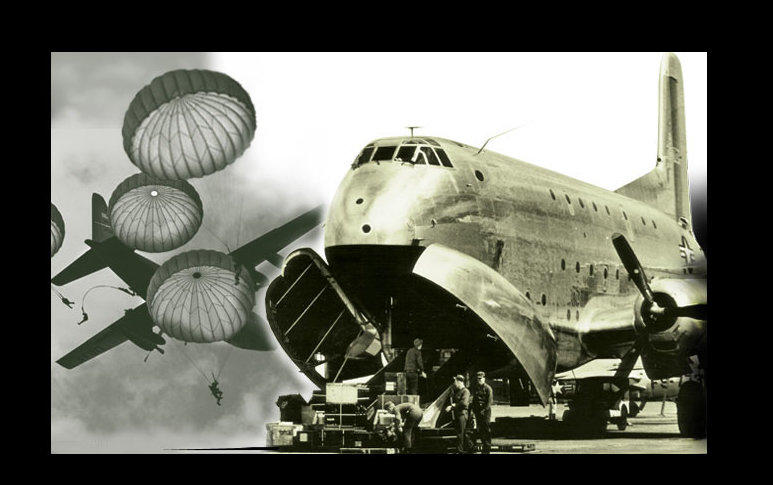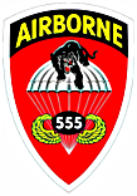


© Official Site Of 555th Parachute Infantry “Triple Nickle”. 2008
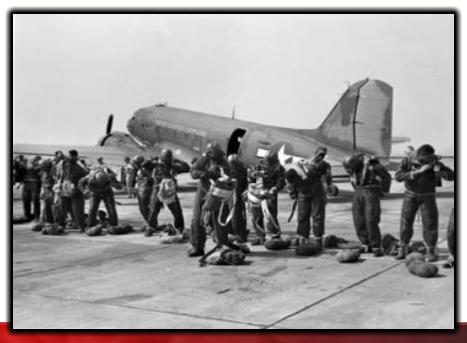



Edward Posey (Master Sergeant Ret.)

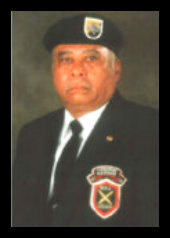

Members of the 2nd Ranger Company (Airborne) aboard ship en route
to Korea in 1950. First lieutenant Warren E. Allen, Company
commander, is standing second from right.

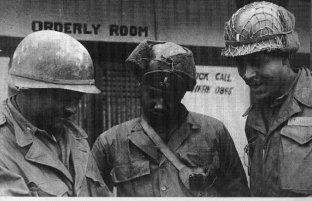
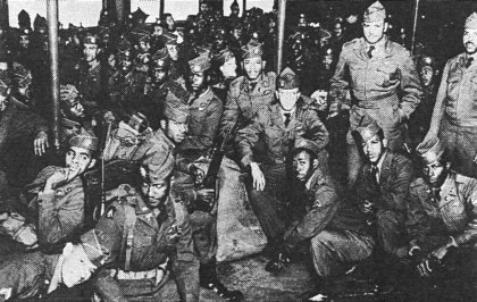
The 2D Ranger Infantry Company (Airborne) was the first and only all- black Ranger unit in the history of the United States
Army. Its ten-month lifespan included selection, training, and seven months of combat
deployment in Korea, after which the unit was deactivated. Edward Posey’s magnificent new
study is the first complete history of this elite, all-volunteer unit, whose members were drawn
from the 3rd Battalion of the 505th Airborne Infantry Regiment and the 80th Airborne Anti-
Aircraft Battalion.
After experiencing the normal travails of boot camp at Fort Benning, which segregation and
racism only made worse, the all-black Rangers set out to join the Korean War in late 1950. On
January 7, 1951, the Rangers found themselves defending a critical rail-road running through
Tanyang Pass, which Communist guerillas tried to infiltrate. The night-time action triggered
the Rangers’ inaugural combat, which ended with the recommendation for a Bronze Star for
gallantry for a Ranger sergeant. Additional combats with the North Korean and Communist
Chinese forces erupted near Majori-ri and Chechon.
But the event that propelled the 2d Rangers into the record books was their airborne assault
near Musan-Ni on March 23, 1951--the first in Ranger history. Once on the ground, Posey and
his comrades attacked and captured Hill 151. The fighting--often conducted at very close
quarters, and some of it with the bayonet and rifle butt--demonstrated the courage of these
tough African American soldiers. Heavy fighting marked their months at the front, including a
magnificent attack and defence of Hill 581 that May. Throughout their deployment in Korea,
the 2d Rangers served with honor and achieved an outstanding combat record.
Posey’s long overdue history (written with the help of other Rangers) is based upon the first-
hand experiences of many members of the unit, official records, interviews with survivors, and
other archival material. Stitched together, this information offers a rich and worthy addition to the growing literature on the
Korean War by explaining the obstacles these patriotic African Americans faced, their sacrifices, and their courageous actions
on the far side of the world.
Nearly sixty years have passed since the Korean War slipped into the realm of history. Now, the world will finally learn the true
story of the United States Army’s first, last, and only all-black Ranger unit. Author Biography Master Sergeant (Ret) Edward L.
Posey joined the US Army in 1947. After serving with Company L, 3rd Battalion, 505th Airborne Infantry Regiment, he
volunteered for airborne training with the Rangers in 1950 and served with distinction in the Korean War (where he was
wounded).
Sergeant Posey retired from the service in 1969. In 2002, he was inducted in the Ranger Hall of Fame for his dedication to
duty and distinguished military career.
Author Biography
Master Sergeant (Ret) Edward L. Posey joined the US Army in 1947. After serving with
Company L, 3rd Battalion, 505th Airborne Infantry Regiment, he volunteered for
airborne training with the Rangers in 1950 and served with distinction in the Korean
War (where he was wounded).
Sergeant Posey retired from the service in 1969. In 2002, he was inducted in the
Ranger Hall of Fame for his dedication to duty and distinguished military career.
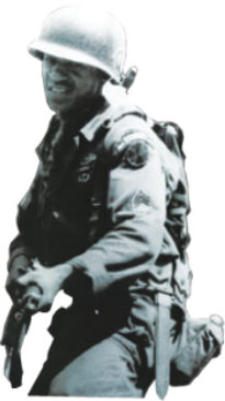
Officers of the 2nd Ranger Company going
over plans for a night attack by members of
the company against a North Korean held
town in the X Corps area of Central Korea.
Officers shown are, L-R: First Lieutenant
Warren E. Allen - Company Commander,
Lieutenant Vincent Wilburn - 2nd Platoon
Leader and Lieutenant James Queen -
Company Executive Officer. 12 February 1951
Members of the 2nd Ranger Company earned numerous awards for Valour. Unit awards include the:
* Korean Presidential Unit citation
* Korean Service Medal
* Combat Infantry Streamer
* Bronze Arrowhead - For Parachute Assault at Munsan-ni
* Chinese communist Forces Intervention - BSM
* First United Nations Counter - Offensive - Bss
* Bronze Star in the center of parachute wings for combat jump at Munsan-ni
* Bronze Star for Spring Offensive
* Bronze Star for Summer Offensive
The troops of the famed 2nd Ranger Infantry Company (Airborne) were all pioneers in their own right. They blazed a trail
though uncharted jungles they fought tenaciously and won against an uncanny and sinister enemy. Their accomplishments on
the field of battle are legendary and will forever be recorded in the military annals of elite United States combat units.
